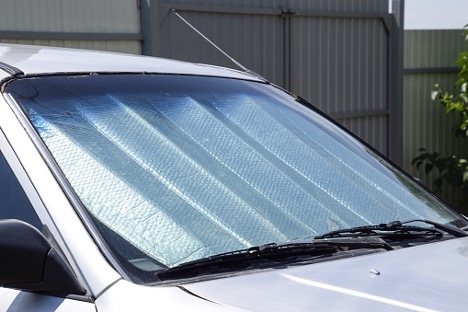- Insurance Resources
- Car Insurance Resources
- Car Insurance for Older Cars
Insurance for older cars: What to consider

What do insurance companies consider an older vehicle?
By understanding how most insurance companies classify older vehicles, you can feel confident that the right coverage applies to your vehicle. Most insurance companies estimate an older vehicle to be one that is 10 years or older and doesn't fall in the category of a classic or vintage car.
Key takeaways
- Paying for full coverage insurance on your older car may not be worth the extra expense.
- Car insurance for older vehicles is generally less expensive compared to insurance for new vehicles.
- The cost of insurance for an older car depends on the vehicle's make, model, condition, your driving history, and many more factors.
Do I need full coverage for an older car?
All cars lose value over time. Because of this, it might not be worth it to pay extra for full insurance, like collision and comprehensive coverage, on an older car.
The reason is because if you're in an accident or have damage that isn't caused by a crash, the cost of the insurance could be more than what you'd get if you filed a claim on an older vehicle.
Ultimately, it's up to you whether to keep paying for extra coverage. Just remember, if you still owe money on your car, your lender might require you to keep that coverage as part of your loan or lease agreement.
What kind of car insurance do I need for an older car?
Regardless of your car's age, it's required to carry your state's minimum liability limits in order to legally register and drive your vehicle. Additionally, you may also be required to carry personal injury protection, as well as medical payment and uninsured motorist coverage.
How can I lower my car insurance on my older car?
Switch to liability only. If your car is considered older, it might not make sense to keep full coverage on your policy. By removing comprehensive and collision coverage, it may lower your auto insurance bill. Just remember, however, that without those coverages you'll pay more out of pocket if something happens to your car.
Increase your deductibles. If you choose to carry full coverage on your older car, consider raising your comprehensive and collision deductibles. A quote with a higher deductible can lower your monthly payment but will be something you may have to pay for out-of-pocket if you ever need to file a claim.
Bundle your coverages. Most insurers offer multi-policy discounts for having more than one type of insurance policy with them. When shopping for insurance for your older car, consider bundling your policy together with a homeowner or rental policy.
Ask about discounts. When shopping for insurance for your older car, be sure to ask about any relevant discounts such as a good student or accident/claims free discounts that can help to lower your car insurance costs.
Get more than one insurance quote. Prices can really differ between companies. When you're looking for insurance for your older car (or any car for that matter), it's a good idea to get quotes from at least three different places.
Is car insurance cheaper for older cars?
Car insurance for older vehicles is often cheaper than for newer cars, but that not always be the case. Insurance companies determine how much you'll pay based on a few things such as the car's value, how easy it is to find replacement parts, and additional safety features.
Since older cars usually have lower values than newer ones, the costs for some types of coverages, like collision and comprehensive coverage, can be less. But the overall cost of your policy depends on many other factors like the car's make and model, its condition, your driving history, and even where you live.
Get a car insurance quote in under 10 minutes to see how much you could save when you only pay for what you need.